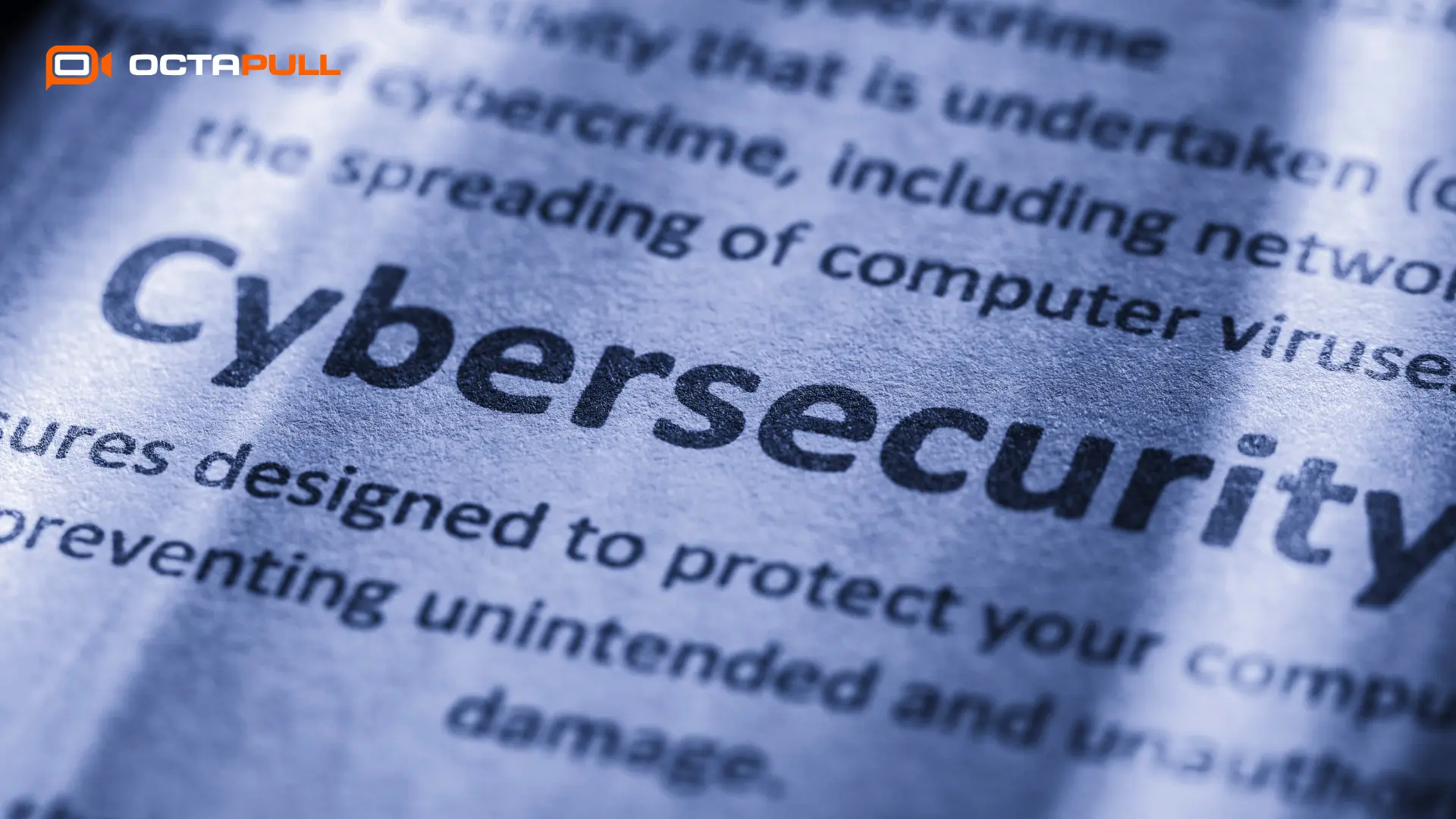Cybersecurity 101: A Beginner's Guide for Small Businesses
In today's fast digital world, every business, no matter how big or small, operates online in different aspects.
Digital tools are now the backbone of modern operations, from managing customer data to processing payments and collaborating with teams. But this convenience also means we have an important responsibility: Cybersecurity.
Cybersecurity might not seem important to small business owners and team leaders who are dealing with digital transformation. You might think that cyber attacks only target large companies. But small businesses are often the main goals.
It is no longer safe to ignore cybersecurity. If your business is hacked, you can suffer vital damages. Good news? You do not need to be a technology expert to protect your business.
In this article, we will explain the basics of cybersecurity, why it's important for your small business, the common threats you might face, and provide practical, easy-to-implement cybersecurity measures you can use.
What is Cybersecurity?
Cybersecurity refers to the importance that must be taking measures to protect digital systems, networks, and data from hackers.Think of cybersecurity as the digital equivalent of locking your doors, securing your valuables, and creating a fire escape plan.
The main purpose of cybersecurity is to secure data about your business, to make sure it is always available when you need it, and to keep it safe.
Why is Cybersecurity Important For Your Business?
For a business, cybersecurity is not just a technical issue; it is crucial for your survival and growth. If you do not have the right security measures, your customer experience may be negatively impacted, and you may have to pay huge fines for data breaches.
As well as the immediate risks to money and how things are done, having strong cybersecurity is important for building trust. When your customers know their information is safe with you, they are more likely to stay loyal and recommend your services.
If you focus on protecting business data, it shows that you care about your customers' privacy and security. This can help your business do better than other businesses. In simple terms, cybersecurity is all about protecting your business's assets, reputation, and future in a world where everything and everyone is connected.
Why Are Small Businesses Prime Targets for Cyber Attacks?
You might be wondering why cybercriminals bother with small businesses when there are already huge companies around.
The truth is, cybercriminals often target small businesses more because they think they will be less protected than big companies. This means they are more likely to be targeted by attackers.There are several reasons why small businesses are particularly vulnerable:
Limited Resources
Many small businesses typically lack the cybersecurity budgets and staffing capabilities of larger corporations. This often leads to critical security vulnerabilities remaining unaddressed.
Focus on Growth Rather Than Security
People who start small businesses often think about sales, making products, and helping customers, which is easy to understand. But sometimes people don't think about security until it's too late. This can create gaps that cybercriminals can easily take advantage of.
Lack of Awareness and Training
Employees at small organizations may not receive regular cybersecurity awareness training. They may unknowingly fall victim to phishing attacks, click on malicious links, or use weak passwords, creating an entry point for attackers.
Easily Accessible Valuable Data
Even small businesses process important information like customer credit card numbers, personal details, trade secrets, and financial records. This information is very popular with cybercriminals.
The First Step in Attacking Large Companies
Attackers often target small businesses as a way to get to larger partners. If a small supplier's systems are hacked, this could allow hackers to access a larger customer's network. This would make the supplier a key part of a cyberattack.
Essential Cyber Security: 6 Steps Your Small Business Can Take Today
You don't need a large budget or an expanded team of IT experts to protect your small business from cyber threats.
You can significantly reduce your risk by implementing basic cybersecurity measures. Here are some basic cybersecurity measures your small business can take today:
1. Strengthen Your Passwords and Use Password Management
Make your passwords strong and unique for all your accounts. A strong password usually includes a mix of upper and lowercase letters, numbers, and symbols, and is at least 12 characters long.
Weak passwords are the easiest way for hackers to get in. A password management solution for SMEs (small/medium-sized enterprises) can help you create, store, and manage complex passwords securely.
2. Enable Two-Factor Authentication (2FA) Wherever Possible
Set up two-factor authentication (also called multi-factor authentication, MFA) on all business accounts, especially email, banking, and important applications.
Even if a hacker gets your password, 2FA requires a second step to verify your identity (like a code sent to your phone), which makes it much harder for them to access your accounts.
3. Back Up Your Data Regularly
Make a plan to back up all your important business data. Follow the "3-2-1 rule": keep three copies of your data on two different types of storage, and save one copy somewhere else (such as in the cloud).
Backups are the best way to protect your data if you have a ransomware attack, if your hardware fails, or if you delete something by accident. If there's ever a problem, you can get your operations back up and running again quickly.
4. Keep All Software Up to Date
Make sure your operating system, applications, browsers, and antivirus software are all up to date. If you can, make sure you always have the latest updates ready.
Software updates often include security patches that address problems that hackers can use. If you ignore updates, your systems are at risk.
5. Train Your Employees on Cybersecurity Best Practices
Teach your team about common threats like phishing, social engineering, and safe internet usage. Have regular training sessions that are easy to understand.
People are often the weakest link in the chain of security. A team that knows what they're doing can spot and report strange activity and protect your computer against email security threats.
6. Secure Your Network (Wi-Fi and Routers)
Change the passwords for your router to something difficult to guess. Use strong encryption (at least WPA3 or WPA2) for your Wi-Fi and think about setting up a separate network for guests.
If you don't secure your network, it's like having an open door for cybercriminals. Your Wi-Fi can limit who can access your network and help protect against DDoS attacks.
Following these steps will give you a solid foundation for your cybersecurity guide for small businesses and help you protect your business data effectively.
Keep Your Digital Transformation Secure with OctaMeet
As your small business starts to use digital technology and remote working, the tools you use every day must be safe. Platforms that help us communicate and work together are a key part of how we do our jobs, so they must be secure and private.
OctaMeet steps in at this point, offering small businesses a simple and secure way to carry out online meetings. This platform provides a safe online meeting space that keeps your discussions and shared information private.
High security video conferencing software OctaMeet uses end-to-end encryption (E2E encryption) for all video, audio, and chat communications, allowing only intended participants to access the content and safeguarding your teleconferencing security.
Beyond secure meetings, OctaMeet's design prioritizes ease of use and affordability, making it an ideal choice for small business founders and team leaders who need powerful tools without straining their budget.
You can register for OctaMeet for free and start your 30-day trial. If you wish, you can schedule a free demo meeting with our product team!






